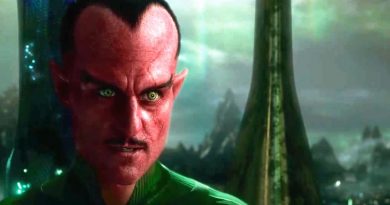Is ‘Space Jam: A New Legacy’ Terrible on Purpose?
As global industry consolidates, creating a world with fewer and larger businesses, the media landscape has proved itself to be somewhat ahead of the times with the embodiment of evil itself: the Walt Disney Corporation, dominating the field. The other major studios don’t offer much competition, with Sony (formerly MGM) continuing its decade-long nosedive and Paramount surviving solely on the back of Tom Cruise. The only real competition over the last few years has been from Warner Bros. Disney has been something of a pioneer of the current IP-driven media trend (i.e. only make movies and TV out of existing ideas and never do anything original), and Warner Bros. has been the only studio able to somewhat keep pace thanks to its deep roster of properties.
All this brings us to Space Jam: A New Legacy. Most impressions of the new Space Jam are that it is not a movie, so much as it is a video-brochure designed to show off WarnerMedia’s many recognizable pieces of IP, including:
- Looney Toons/Merry Melodies (obviously)
- Harry Potter
- Game of Thrones
- Mad Max
- DC Comics
- The Matrix
- King Kong
- Rick and Morty
- Austin Powers
- Scooby Doo and Mystery Inc.
- The Lord of the Rings
- The Sopranos
- and many, many, many more
Since the movie is just a long parade of cameos, it’s no wonder that most critics think it’s awful. It could be that Space Jam is another exercise is the cynical, lazy, thoughtless, programatic filmmaking that Hollywood has been shamelessly indulging in for years now, but maybe there’s more to this whole thing. Maybe Space Jam: A New Legacy is awful on purpose.
WarnerMedia has become something of a running joke considering how many times it has been acquired, merged with other media companies, and sold again. More recently, the company was sold by its parent, AT&T, to Discovery for $43 billion, however many keen-eyed observers have noticed that the deal is structured for flexibility should Discovery want to sell Warner again to a large tech buyer such as Apple, Amazon, or, God-forbid, Disney. And what could serve as a better advertisement for all the potential value locked away in WarnerMedia than a two-hour infotainment advert showcasing all the recognizable legally protected ideas under the Warner umbrella? It’s worth noting that due to the recency of the sale, this film was completed while AT&T was shopping WarnerMedia for acquisition, but it’s still a useful advertising tool for Discovery.
If one has looked at the price of, well, anything lately, one has likely noticed that we are in a seller’s market for just about everything. Public equities are at all time highs with record valuations, and debt offers basically no yield. In private markets, trillions of dollars in deal flow has stretched private equity and real estate valuations into the stratosphere as well. So pretty much everything is incredibly expensive. It is also common that large corporations have a difficult time creating value on their own, and often must resort to buying other businesses to continue their growth. In this environment, Discovery would be foolish not to at least try and flip WarnerMedia to someone for a quick profit and likely at an especially high multiple.
Hopefully not, as the continued consolidation of all businesses is a bad trend for the global economy, and the consolidation of media is especially bad for the world of art and entertainment, where creativity seems to be dying faster than ever. Only time will tell if Space Jam was just a flub or part of a more cynical business strategy.




